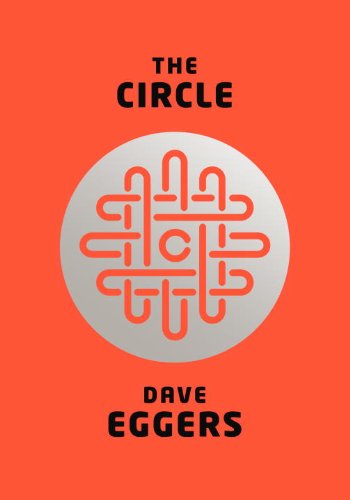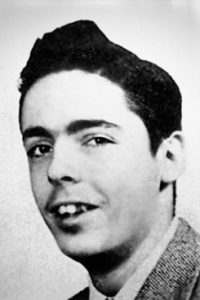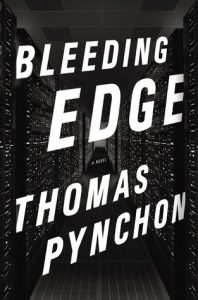Dave Eggers
3 January 2014
Review by Dan Geddes
The Circle, Dave Eggers’ novel named for a fictitious Google-like company that profits from its users’ data and destroys individual privacy, is a topical and compelling read. The story takes place in a near-future Silicon Valley where cheap video cameras are being deployed nearly everywhere, even in nature. Doctors place cameras in people’s houses to monitor their condition. People are even starting to go “transparent”; to wear a Circle-built device on a necklace that records everything they see and do and broadcasts it via the internet—sort of like Google Glass is supposed to be.
Politicians go “transparent” to show their honesty. You can almost see the appeal of such a transparent society. Maybe everybody would be on their best behavior. The fact that this scenario seems both inevitable and nightmarish explains the topical appeal of this book. If nothing is as powerful as an idea whose time has come, this is a book whose time has come.
Working at the Circle seems utopian to the protagonist, Mae Holland, 24. (“My God, Mae thought. It’s heaven.” is the opening line.) She is thrilled to be working at one of the best and coolest companies in America. She hopes to climb the corporate ladder. She owes her job to her college roommate, Annie, who has risen quickly through the ranks to become one of the “Gang of 40,” the top executives at the Circle.
The Circle immerses us in its setting. Eggers recreates the atmosphere of working for rich data companies such as Google, Facebook, or Twitter. The Circle creates a utopian environment on its campus. Employees enjoy a dazzling array of evening events and may even sleep in company rooms. They can shop in the company store with its lovingly chosen inventory of products. Why would anyone even want to ever leave the Circle campus?
The Circle is a novel about ideas, especially about the continuing struggle between technology and privacy. Because many of the technologies described—the video necklaces or the microchips embedded in children in the TruYouth program—are easily imaginable, these developments appear almost inevitable. Even if convincing people to microchip their children may take a generation, children with smart phones are already trackable. We aren’t aware of new technologies not being rolled out on account of Constitutional privacy rights, and there is currently little popular reaction against them. Thus, if some of the technology seems unlikely to some, the novel still has immediacy.
Eggers slowly unfolds the nightmare of the Circle. Mae works in Customer Experience, answering questions from the Circle’s clients. If she gets less than a 100% rating, company procedure prescribes following-up and asking for a better rating (less than a 95% average is unsatisfactory). She’s also expected to keep up with an avalanche of internal social media and so she is soon given many screens to monitor all the social media messages within the company and out. The Circle’s HR department makes it clear that she is expected to spend her time interacting with other Circle employees, both virtually and at after-hours company events. They find it bizarre that she’s totally out of contact with the Circle one weekend.
Eggers captures the mores of some social media users, who expect immediate replies and become frantic when they don’t get one; or the people with whom you connect electronically who expect you to sign up for their mailing list or even recommend them for a job after a brief electronic interaction.
Mae starts off human enough. She is surprised that the Circle’s Human Resources department berates her for not sharing her love of kayaking on social media. They feel she is a mystery. Mae at least shows concern for her parents. Her father’s MS is ruining her mother’s life, as she spends much of her time battling the insurance company to cover the medical bills. Mae tries to help them (via the Circle of course).
When Mae visits her parents, she also sees her ex-boyfriend, Mercer, who also helps her parents but who is resistant to social media. Mercer wants to live in the real (non-virtual) world. He emerges as the conscience of the novel (as such).
The Circle is introducing cheap and light-weight video cameras (the size of a lollipop and called “SeeChange”) with which they intend to blanket the world. Mae is unwittingly caught trespassing by a SeeChange camera. The police arrive, but the owner knows Mae and doesn’t press charges. However, The Circle intends to teach Mae a lesson.
The Circle explores what like might be like if nearly everyone is wearing a Google Glass like device and essentially broadcasting everything they see and via the web. The Truman Show covered some similar ground, but in The Circle, anyone can become a Truman.
Eggers convincingly presents The Circle’s arguments in favor of technologies, such as microchipping children to prevent kidnapping, or other advantages of a total surveillance society: no crime, no domestic violence, 100% voter participation, accountability for politicians. Eggers depicts popular support to roll out these technologies as soon as possible (regardless of their destruction of privacy).
Individual privacy doesn’t appear to have a bright future. The Circle’s avuncular wise man Eamon (with help from Mae) even coins the Orwellian slogans:
SECRETS ARE LIES
SHARING IS CARING
PRIVACY IS THEFT
Clearly individual choice in The Circle is reduced to insipid expressions of taste (virtual smiles, frowns, and sharing), recalling the project in Orwell’s 1984 to reduce all human thought to good (to Like it) or ungood.
The Circle is about corporate dominance, so it is more of a fascist world than the socialist one in 1984. The Circle seems is trying to devour the world (Eggers brings in a rare omnivorous shark to symbolize the Circle), but there’s little opposition. A congresswoman claims that the Circle is a monopoly, but she is conveniently destroyed by a scandal. Mae’s parents resist the constant demands of social media and transparency, but we feel as if it’s mainly a generational thing.
It’s a pity that a novel warning about the loss of the right to privacy doesn’t contain more fully developed characters, with rich, interesting lives worth protecting. Mae is the main character, but she is more of a malleable tool of the Circle than a champion of human freedom. Mae has a romantic interest at the Circle, but the guy is rather ineffectual as a lover. Mae is just lonely sometimes. Annie, her friend, is usually absent, also doesn’t really come across forcefully despite her meteoric rise at the company.
So the thankless job of defending the right to privacy falls to Mae’s ex-boyfriend, Mercer, a slob who creates chandeliers from antlers and silver paint. He only attended community college for two years, but there he picked up ideas about human liberty which Mae rejects.
The mysterious Kalder also seeks Mae’s help in stopping the dreaded completion of the Circle. It isn’t clear why he needs her help; but in the logic of the story it makes sense. This is a novel of ideas and choices. We rarely leave Mae’s perspective. Will she help him? Will she go along with everything the Circle does? That’s the great moral choice of the book.
The Circle unfolds as a contemporary Orwellian nightmare, containing enough positive aspects that you can believe that most people will just go along with it and simply hope it never turns against them.
Reviews of The Circle
“When Privacy is Theft” by Margaret Atwood
“Circle Jerks: Why Do Editors Love Dave Eggers?” by Nitasha Itku
“Dave Eggers: The Circle” by I. Mocko









Be First to Comment